Xavier Bitot
Optimization of Rank Losses for Image Retrieval
Sep 15, 2023Abstract:In image retrieval, standard evaluation metrics rely on score ranking, \eg average precision (AP), recall at k (R@k), normalized discounted cumulative gain (NDCG). In this work we introduce a general framework for robust and decomposable rank losses optimization. It addresses two major challenges for end-to-end training of deep neural networks with rank losses: non-differentiability and non-decomposability. Firstly we propose a general surrogate for ranking operator, SupRank, that is amenable to stochastic gradient descent. It provides an upperbound for rank losses and ensures robust training. Secondly, we use a simple yet effective loss function to reduce the decomposability gap between the averaged batch approximation of ranking losses and their values on the whole training set. We apply our framework to two standard metrics for image retrieval: AP and R@k. Additionally we apply our framework to hierarchical image retrieval. We introduce an extension of AP, the hierarchical average precision $\mathcal{H}$-AP, and optimize it as well as the NDCG. Finally we create the first hierarchical landmarks retrieval dataset. We use a semi-automatic pipeline to create hierarchical labels, extending the large scale Google Landmarks v2 dataset. The hierarchical dataset is publicly available at https://github.com/cvdfoundation/google-landmark. Code will be released at https://github.com/elias-ramzi/SupRank.
Hierarchical Average Precision Training for Pertinent Image Retrieval
Jul 05, 2022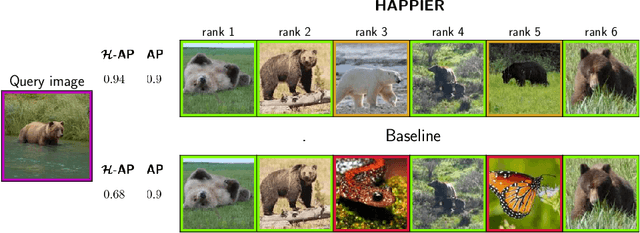
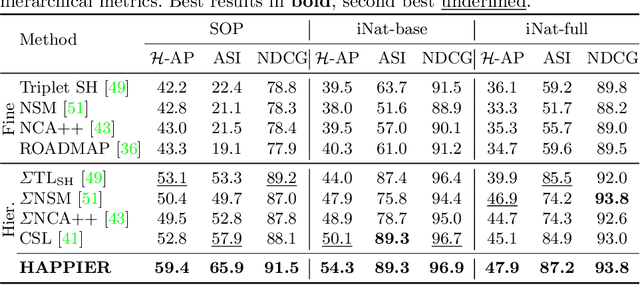
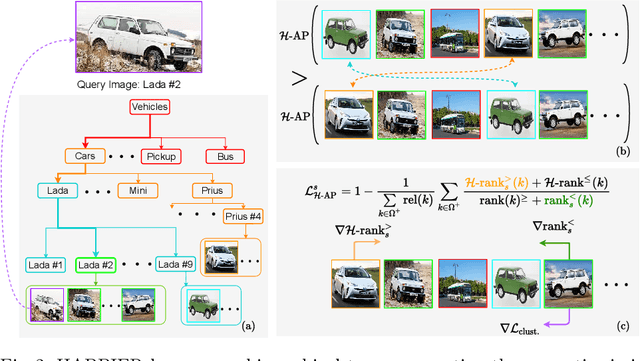
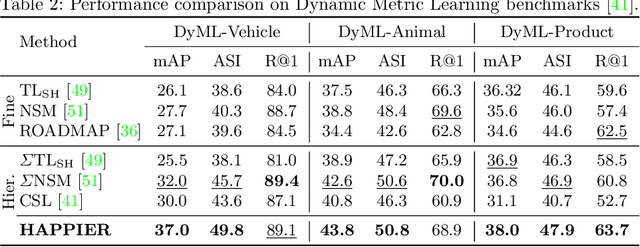
Abstract:Image Retrieval is commonly evaluated with Average Precision (AP) or Recall@k. Yet, those metrics, are limited to binary labels and do not take into account errors' severity. This paper introduces a new hierarchical AP training method for pertinent image retrieval (HAP-PIER). HAPPIER is based on a new H-AP metric, which leverages a concept hierarchy to refine AP by integrating errors' importance and better evaluate rankings. To train deep models with H-AP, we carefully study the problem's structure and design a smooth lower bound surrogate combined with a clustering loss that ensures consistent ordering. Extensive experiments on 6 datasets show that HAPPIER significantly outperforms state-of-the-art methods for hierarchical retrieval, while being on par with the latest approaches when evaluating fine-grained ranking performances. Finally, we show that HAPPIER leads to better organization of the embedding space, and prevents most severe failure cases of non-hierarchical methods. Our code is publicly available at: https://github.com/elias-ramzi/HAPPIER.
Robust and Decomposable Average Precision for Image Retrieval
Oct 01, 2021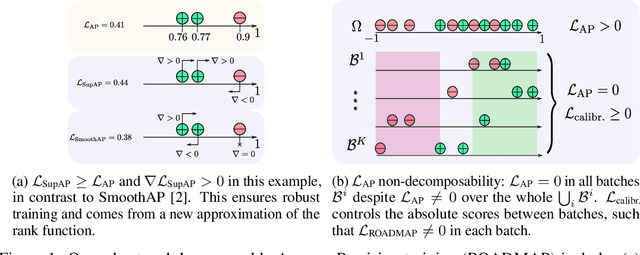
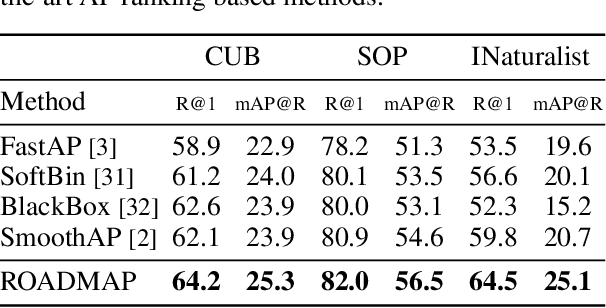
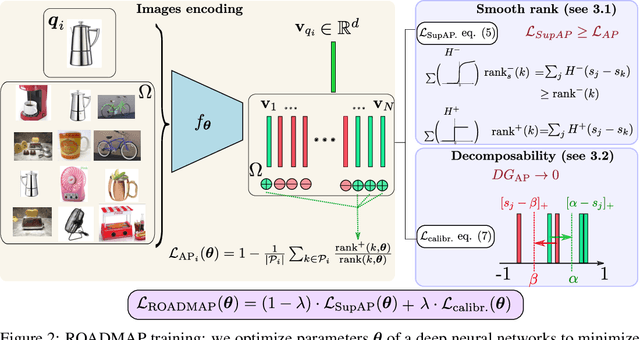

Abstract:In image retrieval, standard evaluation metrics rely on score ranking, e.g. average precision (AP). In this paper, we introduce a method for robust and decomposable average precision (ROADMAP) addressing two major challenges for end-to-end training of deep neural networks with AP: non-differentiability and non-decomposability. Firstly, we propose a new differentiable approximation of the rank function, which provides an upper bound of the AP loss and ensures robust training. Secondly, we design a simple yet effective loss function to reduce the decomposability gap between the AP in the whole training set and its averaged batch approximation, for which we provide theoretical guarantees. Extensive experiments conducted on three image retrieval datasets show that ROADMAP outperforms several recent AP approximation methods and highlight the importance of our two contributions. Finally, using ROADMAP for training deep models yields very good performances, outperforming state-of-the-art results on the three datasets.
 Add to Chrome
Add to Chrome Add to Firefox
Add to Firefox Add to Edge
Add to Edge